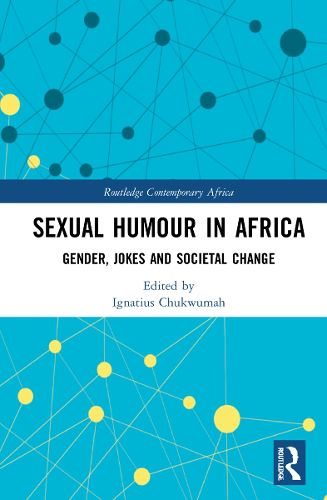Readings Newsletter
Become a Readings Member to make your shopping experience even easier.
Sign in or sign up for free!
You’re not far away from qualifying for FREE standard shipping within Australia
You’ve qualified for FREE standard shipping within Australia
The cart is loading…






This book examines the types, discourse modes, and effects of sex jokes in different African contexts, in a range of different cultural forms, from the internet to music, books, films, advertising, and images, thus filling the existing void in literature on the subject.
Arguing that sex jokes are used to perform a number of functions in African society, the contributors show how they can be used to perpetuate violence against women, construct spaces, resist oppression, create conformity, build affiliations, and subvert morality. They consider jokes from Egypt, Ghana, Nigeria, Kenya, and Zambia in a range of forms including queer sex jokes, rape jokes, performed sex jokes, gendered humour, and resistance sex humour. The book places particular emphasis on the impact of new media platforms and the anonymity they provide.
Providing an important analysis of this tabooed but culturally important facet of everyday life, this book will be of interest to scholars of African culture and society from a range of disciplines, including anthropology, gender studies, literary studies, and sociology.
$9.00 standard shipping within Australia
FREE standard shipping within Australia for orders over $100.00
Express & International shipping calculated at checkout
This book examines the types, discourse modes, and effects of sex jokes in different African contexts, in a range of different cultural forms, from the internet to music, books, films, advertising, and images, thus filling the existing void in literature on the subject.
Arguing that sex jokes are used to perform a number of functions in African society, the contributors show how they can be used to perpetuate violence against women, construct spaces, resist oppression, create conformity, build affiliations, and subvert morality. They consider jokes from Egypt, Ghana, Nigeria, Kenya, and Zambia in a range of forms including queer sex jokes, rape jokes, performed sex jokes, gendered humour, and resistance sex humour. The book places particular emphasis on the impact of new media platforms and the anonymity they provide.
Providing an important analysis of this tabooed but culturally important facet of everyday life, this book will be of interest to scholars of African culture and society from a range of disciplines, including anthropology, gender studies, literary studies, and sociology.